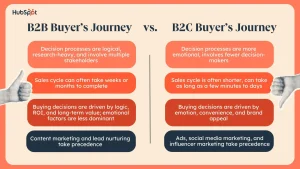
Branding can feel like a daunting task for small business owners. After all, a successful small business has to wear a lot of hats – sales, marketing, product development, and customer service, among many others.
It’s tempting to think that branding is just for globally recognized brands like Coca Cola, Brand Beckham or Apple – but the truth is, effective business branding is crucial to businesses at all levels.
Brand Recognition
Brand recognition refers to the perception that consumers (ideally in your target audience) hold of a business. This can include visual cues like logos and colors, but also sound identifiers like taglines and jingles. Effective branding helps your business stand out in a crowded marketplace and establishes your brand identity in the minds of customers and potential clients.
This can help to support advertising and marketing efforts, encourage customer loyalty, and more. Additionally, it can help your business grow by establishing a reputation in your industry and increasing perceived value and pricing power for your products or services.
Brand recognition can be achieved through a variety of different strategies, such as strategic partnerships. For example, partnering with a related business to host an event or provide a free sample can help your business reach new audiences and increase brand awareness. Other ways to build brand recognition include leveraging social media, creating a blog, and utilizing promotional products.
Brand Differentiation
One of the reasons why many small businesses struggle to attract and retain customers is that they lack effective brand differentiation. This is the process of showing how you are different from competitors in a way that is relevant to customers.
To establish brand differentiation, you need to be able to identify the key aspects of your company that make it unique and memorable. These can be anything from your product to your customer service practices.
For example, some companies have even gone as far as to spell customers’ names wrong on their coffee cups, in hopes that the customers will post it on social media and tell their friends about it. While this strategy may seem a little extreme, it is an excellent way to build brand loyalty.
A well-managed branding strategy will highlight these unique aspects of your business, allowing you to differentiate yourself from the competition. This will ultimately help you attract and retain customers, giving your business a competitive edge.
Brand Loyalty
Branding is important for small businesses because it builds loyalty amongst customers. A loyal customer base can help a business grow and expand by providing repeat business, referrals, and word-of-mouth advertising. Branding is also important for small businesses because it helps a business stand out from competitors.
In order to build brand loyalty, it’s important to create an emotional connection with your customers. This is possible by establishing your company’s deepest values and guidelines and communicating them clearly with your audience.
It’s also important to ensure that your entire staff is familiar with and understands your branding guidelines. This includes your sales and customer service staff who will be directly engaging with customers. In addition, it’s a good idea to implement social media marketing strategies that allow you to engage with your customers in a two-way conversation and reinforce your brand messaging. For example, using a live video chat service to answer questions or provide product demos can increase your customer engagement and build brand loyalty.
Brand Trust
Most small businesses overlook the importance of branding, assuming that it is only vital for larger companies with bigger budgets and recognition. However, the reality is that every business needs a strong brand to gain customers and remain competitive.
Branding can help a company distinguish itself from competitors and become a unique market player. This is because brand identity communicates a business’ defining characteristics and its values to the target audience. Branding includes a wide variety of marketing activities, such as logos, taglines, jingles, packaging, and advertising.
When consumers make a purchase, they usually choose the brand that they trust and recognize. A company’s branding can build trust by conveying a polished and professional image that inspires confidence. In fact, a recent survey conducted by Edelman indicated that brands came in fifth among the top 11 buying considerations, following product quality, price, convenience and value. In addition, a well-managed branding strategy can build trust through customer service interactions and email communications.


